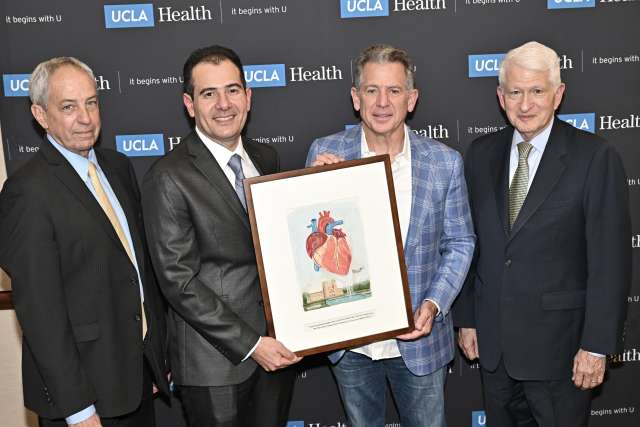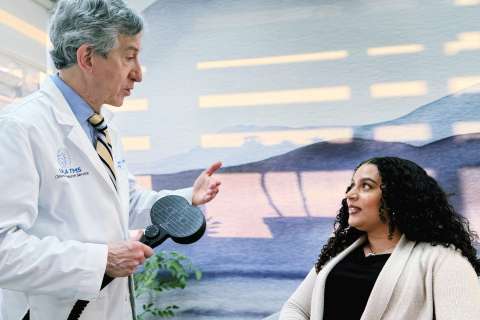The UCLA Division of Cardiology has received a $2 million gift from a UCLA alumnus to endow research focused on cardiovascular and cardiometabolic health.
Alumnus Kirk Dunn made the gift in honor of his late son, Connor Dunn. The Connor Dunn Endowed Fund in Preventive Cardiovascular Health will help further the work of Dr. Tamer Sallam, vice chair of the UCLA Department of Medicine, executive director of the UCLA Specialty Training and Advanced Research, or STAR, Program.
Sallam’s laboratory focuses on how genetics impact cardiometabolic diseases, a group of common and often preventable conditions, such as heart attack, stroke and diabetes. The gift is aimed at accelerating discoveries and clinical strategies targeting inflammation and metabolism in heart disease. It will support several projects, including promising multidisciplinary pilot studies.
“We are grateful to the Dunn family for their incredible generosity,” said Sallam, who is also co-director of the UCLA Lipid Center. “Their support will fuel efforts on campus to increase understanding of the factors that influence cardiometabolic conditions. By developing innovative clinical tools, we can ensure that patients have the knowledge they need to address previously undetected cardiovascular issues, helping to prevent tragic outcomes.”
Kirk Dunn graduated from UCLA in 1983 and has been an active member of the university community in the years since. He currently serves on the board of the UCLA Easton Technology Management Center.
“I am proud to invest in this research,” Dunn said. “The work of Dr. Sallam and his colleagues is moving the needle in cardiology to the benefit of countless patients and their families. As someone who has been deeply affected by cardiovascular disease, I look forward to the extraordinary progress that they are poised to make in this key area of medicine.”



